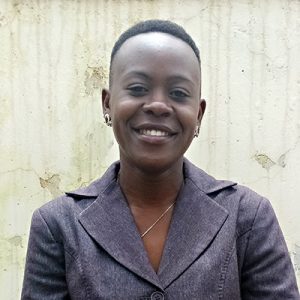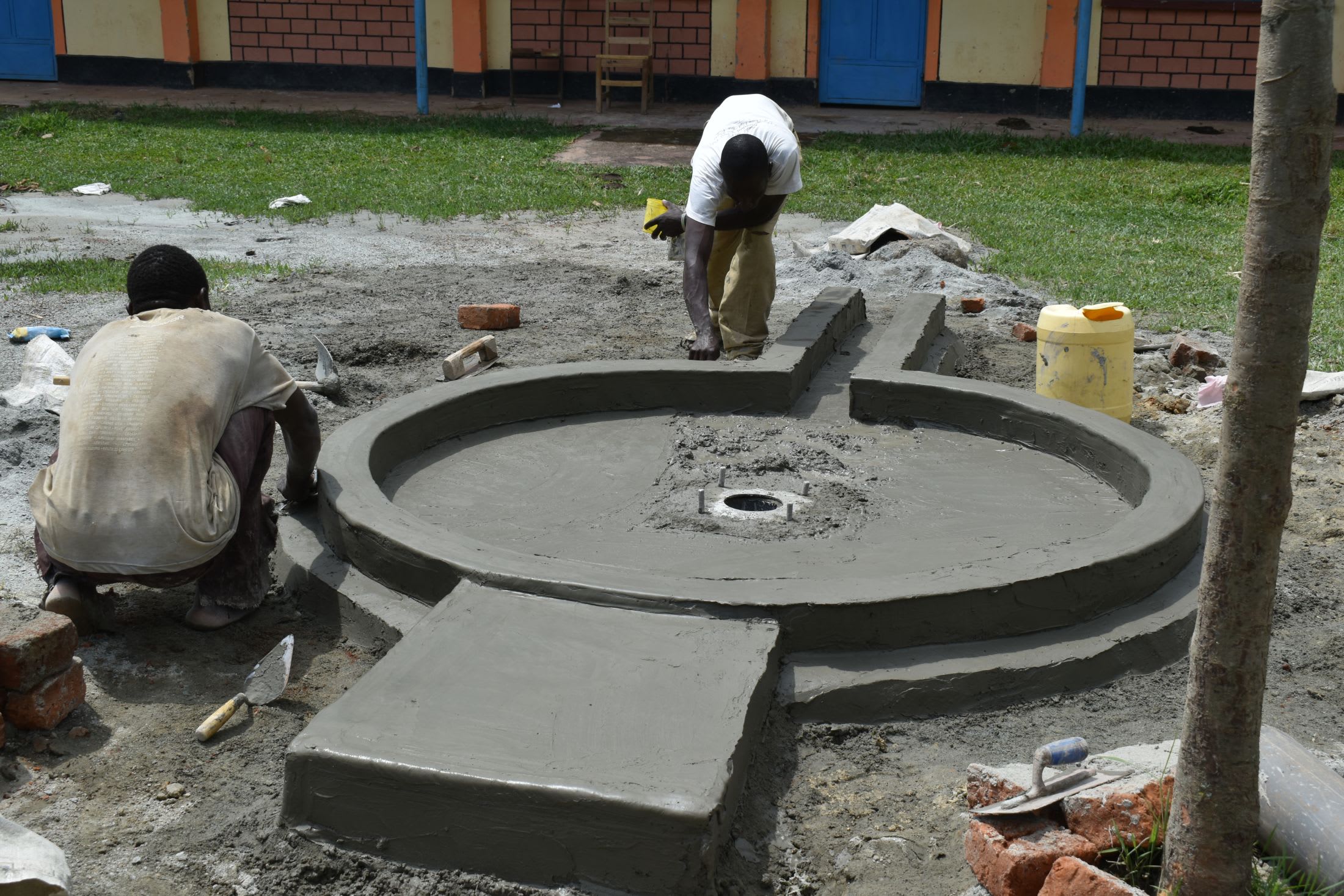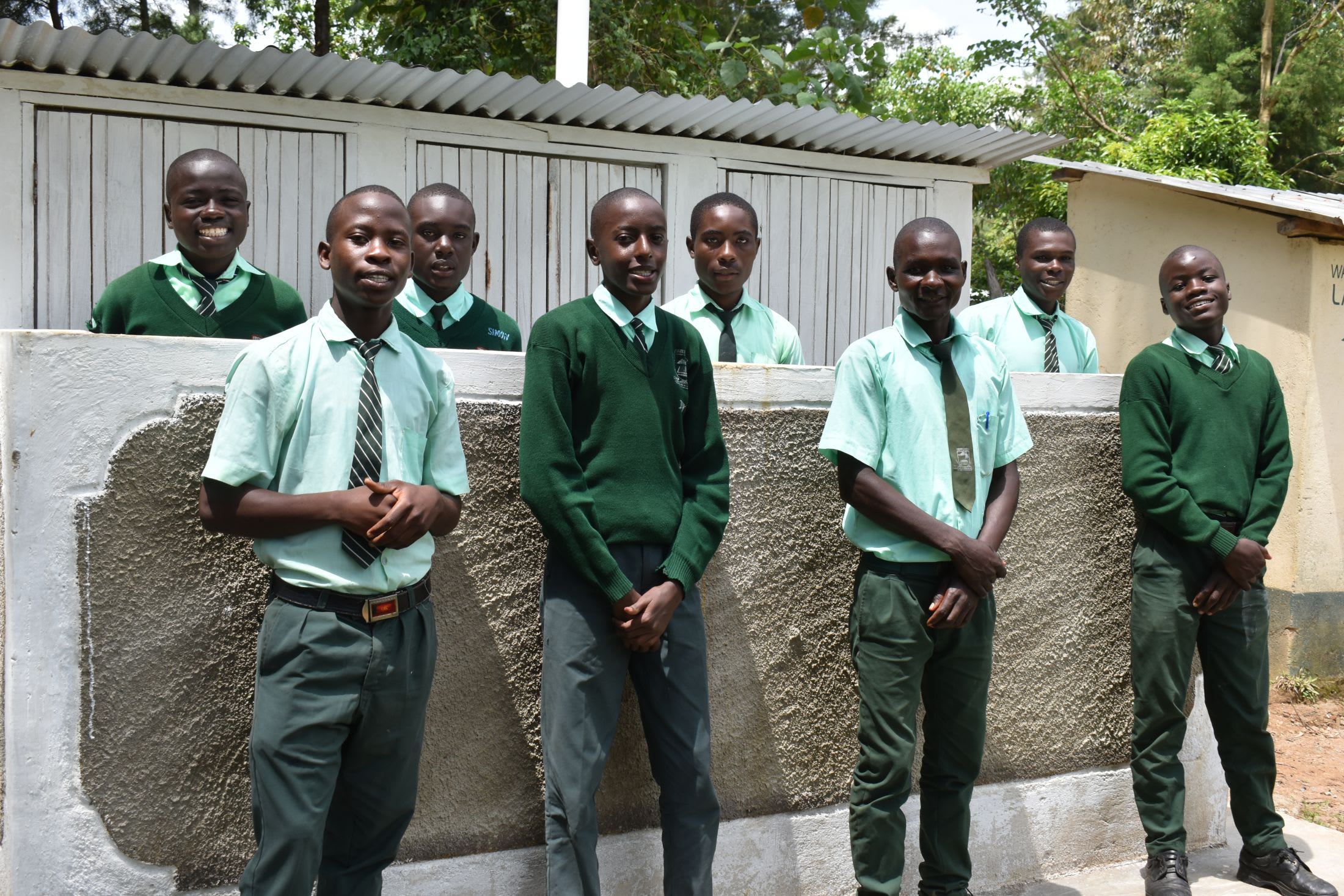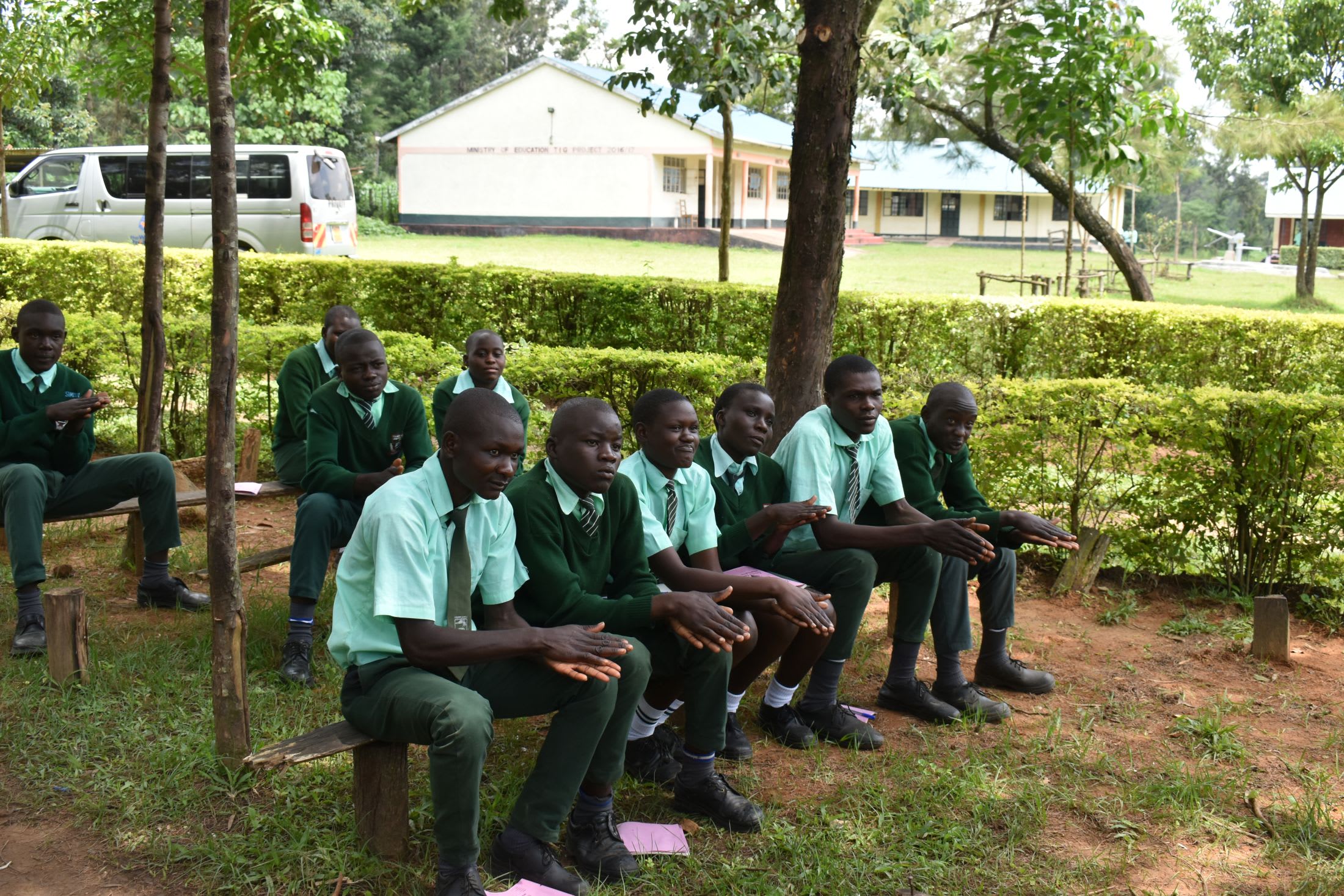The 386 students and staff of Lukala Secondary School scramble daily to collect enough water, but none of the water sources on their school campus can produce sufficient water to meet their needs.
The school has an old dug well, but it runs dry quickly, and the water it produces is questionable. It is not uncommon for students to be disheartened when they are last in line and pull up brown, muddy water. But sadly and understandably, when students are thirsty, they consume any water they can find. Below, you can see students gathering around the well for a turn to snatch a bit of water before it runs out.

"The last time the protected dug well went dry, I was forced to drink mud water. I tried pumping, and all that came out was mud water. I had no alternative other than [to] drink it. [I] couldn't hold my thirst until home time," said 18-year-old Fred S. (seen below).

"The protected dug well, which is the main water source for this school, dries up during the dry season. The protected dug well goes dry, rendering pupils helpless in terms of drinking water, handwashing, sanitation, and hygiene. Students go thirsty the whole day, even after having their lunch in school. General cleaning that [is] often done on Fridays has many times been postponed due to lack of enough water within the school," said field officer Lillian Achieng.
The school also has a few small rain tanks, but when rain is sparse, particularly during the dry season, and the demand is great, they run dry quickly. Even when they are full, students can not drink the water because the tank's water is not treated, and its quality is poor.

"The rainwater in the tanks is never used for drinking due to the small visible worms present. The rainwater harvesting tanks go dry, too, during the dry months," said Lillian.
When both sources at the school are empty, students are supposed to be accompanied by staff to collect water from the local river, but this interrupts everyone's day and stops the learning that should be happening.

"Sometimes, I am unable to follow the students out of school when they go to the river to fetch water due to my busy schedule. This has not been taken positively by [my] seniors and has been termed as rebelliousness. It affects my teaching and puts my job at stake," said 55-year-old teacher Jemmimah Nekesa (shown below).
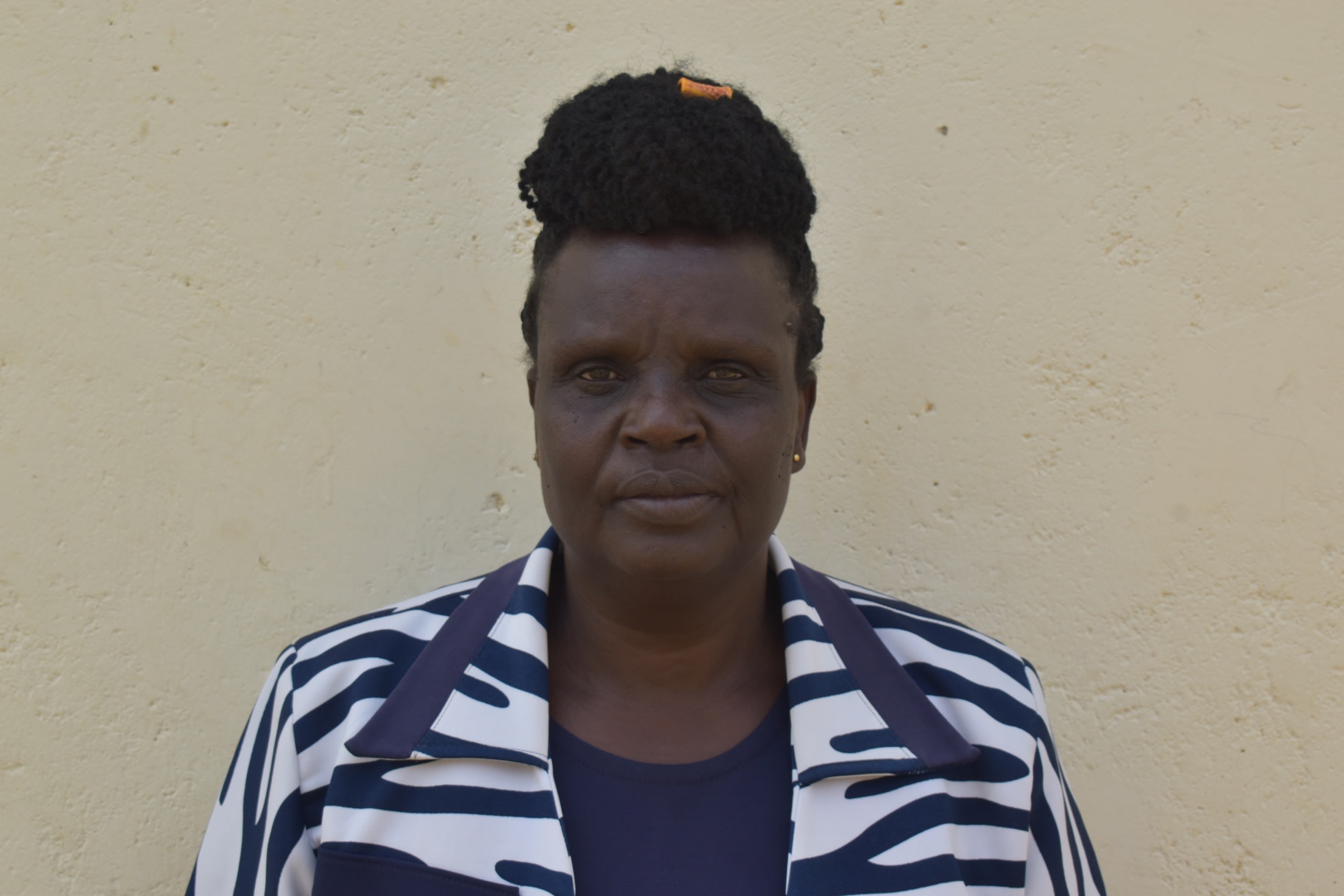
Not only does it cause delays for everyone, distracting them from their regular routine, but sadly, the water everyone spends so much time and effort collecting is also unsafe to consume. Without alternatives, there is no choice but to take the risk and drink it anyway.
"Water drawn from the river is never safe due to high contamination from animals and plants. Consumption of water from the river has severely caused stomach-related diseases to both students and staff," Lillian concluded.
Installing a borehole well that goes deeper than the dug well will provide sufficient water to meet everyone's needs throughout the year. Then, students and staff will not have to fight for each sip of water and can consume water they can trust whenever needed. They will also regain their time and energy to focus on learning.
Water at schools is unique, which is why we need unique solutions.
The Proposed Solution, Determined Together...
At The Water Project, everyone has a part in conversations and solutions. We operate in transparency, believing it benefits everyone. We expect reliability from one another as well as our water solutions. Everyone involved makes this possible through hard work and dedication.
In a joint discovery process, community members determine their most advantageous water solution alongside our technical experts. Read more specifics about this solution on the What We're Building tab of this project page. Then, community members lend their support by collecting needed construction materials (sometimes for months ahead of time!), providing labor alongside our artisans, sheltering and feeding the builders, and supplying additional resources.
Water Access for Everyone
This water project is one piece in a large puzzle. In Kenya, Sierra Leone, and Uganda, we're working toward complete coverage of reliable, maintained water sources that guarantee public access now and in the future within a 30-minute round trip for each community, household, school, and health center. One day, we hope to report that this has been achieved!
Training on Health, Hygiene & More
With the community's input, we've identified topics where training will increase positive health outcomes at personal, household, and community levels. We'll coordinate with them to find the best training date. Some examples of what we train communities on are:
- Improved hygiene, health, and sanitation habits
- Safe water handling, storage & treatment
- Disease prevention and proper handwashing
- Income-generation
- Community leadership, governance, & election of a water committee
- Operation and maintenance of the water point
Handwashing Stations
Alongside each water source, we also provide two new gravity-fed handwashing stations that will allow everyone at the school to wash their hands without running water. Handwashing is so important to help prevent future water-related illnesses in the school community.
The student health club will maintain the stations, fill them with water, and supply them with soap (which we will teach the school community how to make during the training!).
VIP Latrines
In addition, we will construct two triple-door Ventilated Improved Pit (VIP) latrine blocks designed to prevent fecal disease transmission. Each latrine will have a cement floor, which is easy to use and clean regularly. Three doors will serve the girls, and three doors will serve the boys.

 Borehole Well and Hand Pump
Borehole Well and Hand Pump
 Rehabilitation Project
Rehabilitation Project












